The Congress leader was sworn in by Governor Lt Gen (retd) S K Sinha as the tenth Jammu and Kashmir chief minister on Wednesday evening.
SRINAGAR: Ghulam Nabi Azad was on Wednesday sworn in as the tenth Chief Minister of Jammu and Kashmir.
The oath of office and secrecy were administered to Azad by Governor Lt Gen (retd) S K Sinha at the Sher-e-Kashmir International Convention complex on the banks of the Dal Lake at 5.15 pm.
Besides Azad, those who took oath as cabinet ministers are five PDP leaders, including Muzaffar Hussain Baig, four Congressmen, including Mangat Ram Sharma, Deputy Chief Minister in the previous government, two Independents from Ladakh and one from Peoples Democratic Forum, floated by Independent legislators.
Union Home Minister Shivraj Patil, former chief ministers Mufti Mohammad Sayeed and Farooq Abdullah and All India Congress Committee General Secretary in-charge of Jammu and Kashmir Ambika Soni were among those who attended the swearing-in.
The Congress assumed power in Jammu and Kashmir after about 30 years with the swearing in of Azad.
The party was in power in the state till 1975. He is the third Congress leader to become Jammu and Kashmir chief minister; the others being Syed Mir Qasim and Ghulam Mohammad Sadiq, who was the first chief minister of Jammu and Kashmir as before his tenure the state used to have a prime minister and a Sadar-e- Riyasat (President of the State) in place of the Governor.
Sadiq, who was instrumental in laying the foundation of the Congress in Jammu and Kashmir, headed the state from March 30, 1965 to December 12, 1971.
Qasim was the last Congress chief minister from December 1971 to February 24, 1975 when he resigned to facilitate power transfer to National Conference leader Sheikh Mohammad Abdullah following the Indira Gandhi-Sheikh accord of November 13, 1975.
However, the Congress withdrew support to the government on March 25, 1977. The next day, the Assembly was dissolved and Governor's rule was proclaimed in the state for the first time.
Sheikh Abdullah again held the chief minister's post from July 9, 1977 till his death on September 8, 1982.
After Sheikh Abdullah's death, his son Farooq Abdullah became chief minister on September 8, 1982.
The NC contested the sixth Assembly elections in June 1983 in alliance with the Congress. The NC secured 46 seats followed by the Congress with 26 seats.
However, the Farooq Abdullah-led government was dismissed on July 2, 1984 and his brother-in-law Ghulam Mohammad Shah was sworn-in as chief minister with support from the Congress. Shah ruled from July 2, 1984 to March 6, 1986.
On March 6, 1986, the Congress withdrew support to the G M Shah government while the Assembly was kept under suspended animation and Governor's rule imposed once again in the state.
The state was later placed under President's rule in September the same year for the first time after expiry of the six-month Governor's rule.
Two months later on November 7, 1986 President's rule was revoked after the Rajiv Gandhi-Farooq Accord, paving way for the NC-Congress alliance to take over the reins of the administration.
In the March 1987 polls, the NC-Congress alliance returned to power. The NC bagged 39 seats while the Congress won 24 seats in the mid term poll.
On March 26 the same year, the coalition ministry headed by Dr Farooq Abdullah was sworn-in.
However, in January 1990 Jagmohan was re-appointed as the Governor of the state which prompted a protest resignation from Dr Abdullah. The state was once again placed under Governor's Rule and the Assembly kept in suspended animation.
On February 19, 1990, the State Assembly was dissolved by Jagmohan.
The NC government led by Dr Abdullah again took the reins on October 9, 1996 and continued till October 18, 2002.
After the 2002 Assembly elections threw up a hung House, the Congress entered into a post-poll alliance with the Peoples Democratic Party.
A power-sharing agreement was reached between the two parties under which each party would rule the state for three years.
Both the PDP and the Congress agreed to hold the post of Chief Minister on a three-year rotational basis.
Despite being the senior partner, the Congress allowed the PDP to govern the state for the first three-year term which ended on Wednesday.
DMK President M Karunanidhi greeted Azad and said his experience and wisdom would help meet any challenge and solve problems.
In his message, the DMK chief said, "It is a challenging assignment. The long and brilliant experience you have acquired so far and your outstanding wisdom will be of great help to meet any challenge and solve any problem."
"I wish you a very comfortable and happy stay, which will definitely be devoted to the cause and development of the Kashmir Valley," he said.
Earlier, Prime Minister Dr Manmohan Singh wished Ghulam Nabi Azad all success as the tenth chief minister of Jammu and Kashmir.
In a message to Azad, Singh also recalled his (Azad's) valuable contributions as a member of the Union Cabinet and his commendable management of proceedings in Parliament since May 2004.
![submenu-img]() DNA Explainer: Why was Iranian president Ebrahim Raisi, killed in helicopter crash, regarded as ‘Butcher of Tehran’?
DNA Explainer: Why was Iranian president Ebrahim Raisi, killed in helicopter crash, regarded as ‘Butcher of Tehran’?![submenu-img]() 1 dead, many injured after London-Singapore flight hit by severe...
1 dead, many injured after London-Singapore flight hit by severe...![submenu-img]() This film was based on iconic love story, actors and director died midway, was released incomplete 23 years later
This film was based on iconic love story, actors and director died midway, was released incomplete 23 years later![submenu-img]() Meet man who used to go medicine factory in childhood, now runs Rs 109000 crore pharma company, his net worth is...
Meet man who used to go medicine factory in childhood, now runs Rs 109000 crore pharma company, his net worth is...![submenu-img]() Akshay Kumar 'accidently' collided with RTO officer's bike in Bangkok, shares what happened next: 'I immediately...'
Akshay Kumar 'accidently' collided with RTO officer's bike in Bangkok, shares what happened next: 'I immediately...' ![submenu-img]() Maharashtra HSC 12th 2024: Result declared, know how to check
Maharashtra HSC 12th 2024: Result declared, know how to check![submenu-img]() Meet man who topped IIT-JEE, studied at IIT Bombay, then went to MIT, now is...
Meet man who topped IIT-JEE, studied at IIT Bombay, then went to MIT, now is...![submenu-img]() Meet man who once used to sell newspapers at 9, cracked UPSC exam, he is now…
Meet man who once used to sell newspapers at 9, cracked UPSC exam, he is now…![submenu-img]() Meet woman who secured high-paying job, not from IIT, IIM, VIT, her record-breaking package is...
Meet woman who secured high-paying job, not from IIT, IIM, VIT, her record-breaking package is...![submenu-img]() Maharashtra HSC Result 2024: Class 12th result to be released today, know time, steps to check
Maharashtra HSC Result 2024: Class 12th result to be released today, know time, steps to check![submenu-img]() DNA Verified: Is CAA an anti-Muslim law? Centre terms news report as 'misleading'
DNA Verified: Is CAA an anti-Muslim law? Centre terms news report as 'misleading'![submenu-img]() DNA Verified: Lok Sabha Elections 2024 to be held on April 19? Know truth behind viral message
DNA Verified: Lok Sabha Elections 2024 to be held on April 19? Know truth behind viral message![submenu-img]() DNA Verified: Modi govt giving students free laptops under 'One Student One Laptop' scheme? Know truth here
DNA Verified: Modi govt giving students free laptops under 'One Student One Laptop' scheme? Know truth here![submenu-img]() DNA Verified: Shah Rukh Khan denies reports of his role in release of India's naval officers from Qatar
DNA Verified: Shah Rukh Khan denies reports of his role in release of India's naval officers from Qatar![submenu-img]() DNA Verified: Is govt providing Rs 1.6 lakh benefit to girls under PM Ladli Laxmi Yojana? Know truth
DNA Verified: Is govt providing Rs 1.6 lakh benefit to girls under PM Ladli Laxmi Yojana? Know truth![submenu-img]() AI models show bikini style for perfect beach holiday this summer
AI models show bikini style for perfect beach holiday this summer![submenu-img]() Laapataa Ladies actress Chhaya Kadam ditches designer clothes, wears late mother's saree, nose ring on Cannes red carpet
Laapataa Ladies actress Chhaya Kadam ditches designer clothes, wears late mother's saree, nose ring on Cannes red carpet![submenu-img]() Urvashi Rautela mesmerises in blue celestial gown, her dancing fish necklace steals the limelight at Cannes 2024
Urvashi Rautela mesmerises in blue celestial gown, her dancing fish necklace steals the limelight at Cannes 2024![submenu-img]() Kiara Advani attends Women In Cinema Gala in dramatic ensemble, netizens say 'who designs these hideous dresses'
Kiara Advani attends Women In Cinema Gala in dramatic ensemble, netizens say 'who designs these hideous dresses'![submenu-img]() Influencer Diipa Büller-Khosla looks 'drop dead gorgeous' in metallic structured dress at Cannes 2024
Influencer Diipa Büller-Khosla looks 'drop dead gorgeous' in metallic structured dress at Cannes 2024![submenu-img]() DNA Explainer: Why was Iranian president Ebrahim Raisi, killed in helicopter crash, regarded as ‘Butcher of Tehran’?
DNA Explainer: Why was Iranian president Ebrahim Raisi, killed in helicopter crash, regarded as ‘Butcher of Tehran’?![submenu-img]() DNA Explainer: Why did deceased Iranian President Ebrahim Raisi wear black turban?
DNA Explainer: Why did deceased Iranian President Ebrahim Raisi wear black turban?![submenu-img]() Iran President Ebrahim Raisi's death: Will it impact gold, oil prices and stock markets?
Iran President Ebrahim Raisi's death: Will it impact gold, oil prices and stock markets?![submenu-img]() Haryana Political Crisis: Will 3 independent MLAs support withdrawal impact the present Nayab Saini led-BJP government?
Haryana Political Crisis: Will 3 independent MLAs support withdrawal impact the present Nayab Saini led-BJP government?![submenu-img]() DNA Explainer: Why Harvey Weinstein's rape conviction was overturned, will beleaguered Hollywood mogul get out of jail?
DNA Explainer: Why Harvey Weinstein's rape conviction was overturned, will beleaguered Hollywood mogul get out of jail?![submenu-img]() This film was based on iconic love story, actors and director died midway, was released incomplete 23 years later
This film was based on iconic love story, actors and director died midway, was released incomplete 23 years later![submenu-img]() Akshay Kumar 'accidently' collided with RTO officer's bike in Bangkok, shares what happened next: 'I immediately...'
Akshay Kumar 'accidently' collided with RTO officer's bike in Bangkok, shares what happened next: 'I immediately...' ![submenu-img]() Meet man, his grandfather founded political party, uncle was CM, he ditched it for Bollywood, worked for Bhansali, now..
Meet man, his grandfather founded political party, uncle was CM, he ditched it for Bollywood, worked for Bhansali, now..![submenu-img]() Meet actor who worked with SRK, Salman, Sushmita, gave many flop films, quit acting, married granddaughter of CM..
Meet actor who worked with SRK, Salman, Sushmita, gave many flop films, quit acting, married granddaughter of CM..![submenu-img]() 'Pregnant for sure': Katrina Kaif, Vicky Kaushal's viral video from London sparks pregnancy speculations
'Pregnant for sure': Katrina Kaif, Vicky Kaushal's viral video from London sparks pregnancy speculations ![submenu-img]() Viral video: Bride makes dramatic entrance from giant ice cube at snowy Alpine wedding in Switzerland
Viral video: Bride makes dramatic entrance from giant ice cube at snowy Alpine wedding in Switzerland![submenu-img]() Elephant lifts safari truck with tourists in shocking viral video, watch
Elephant lifts safari truck with tourists in shocking viral video, watch![submenu-img]() In another gaffe, Joe Biden says he was US 'Vice President' during COVID-19 pandemic, watch viral video
In another gaffe, Joe Biden says he was US 'Vice President' during COVID-19 pandemic, watch viral video![submenu-img]() Meet Nihar Thackeray, lesser-known nephew of Uddhav Thackeray, he is Eknath Shinde's...
Meet Nihar Thackeray, lesser-known nephew of Uddhav Thackeray, he is Eknath Shinde's...![submenu-img]() Heroic buffalo herd rescues one of their own from lion ambush, video is viral
Heroic buffalo herd rescues one of their own from lion ambush, video is viral


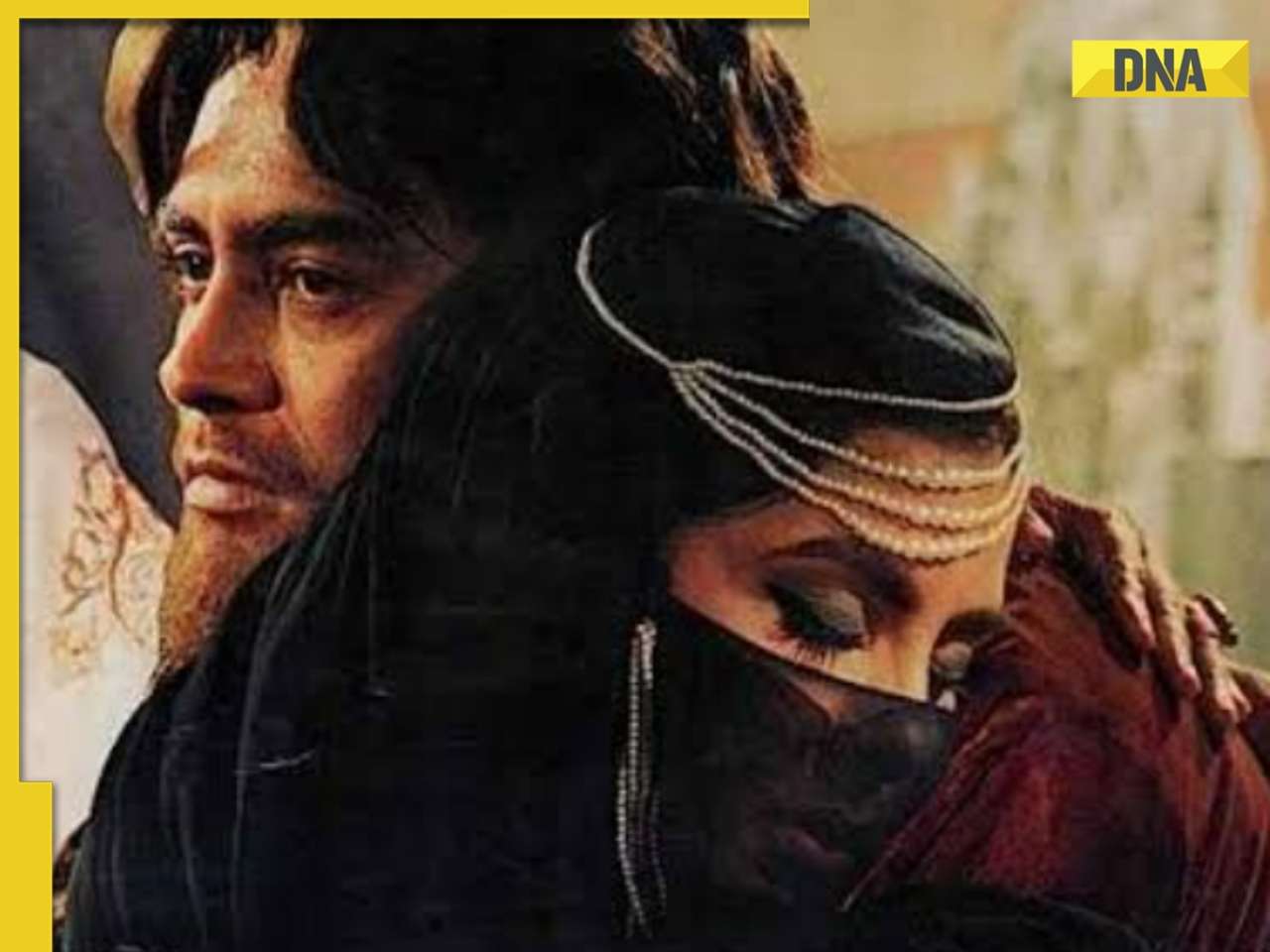
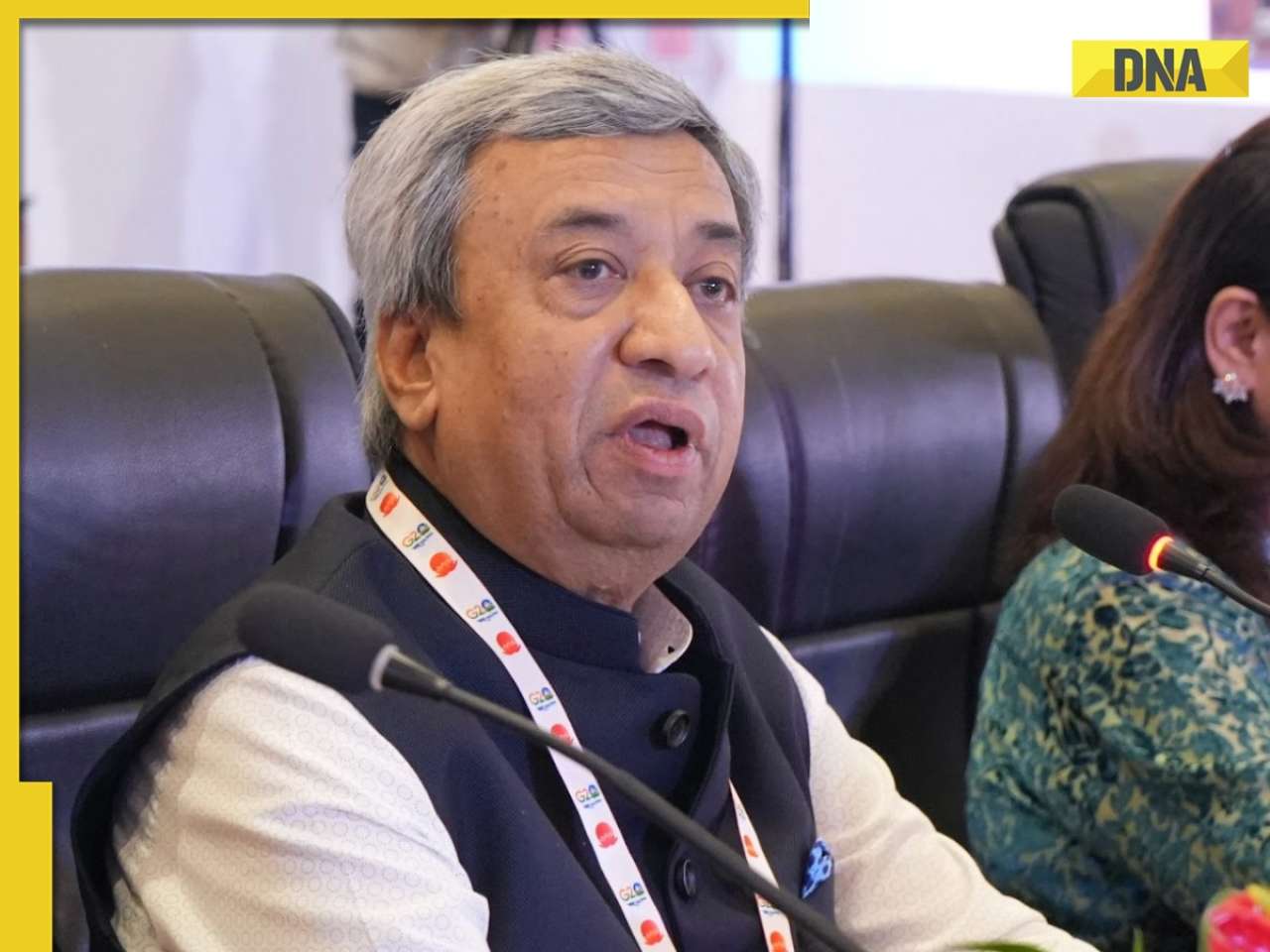
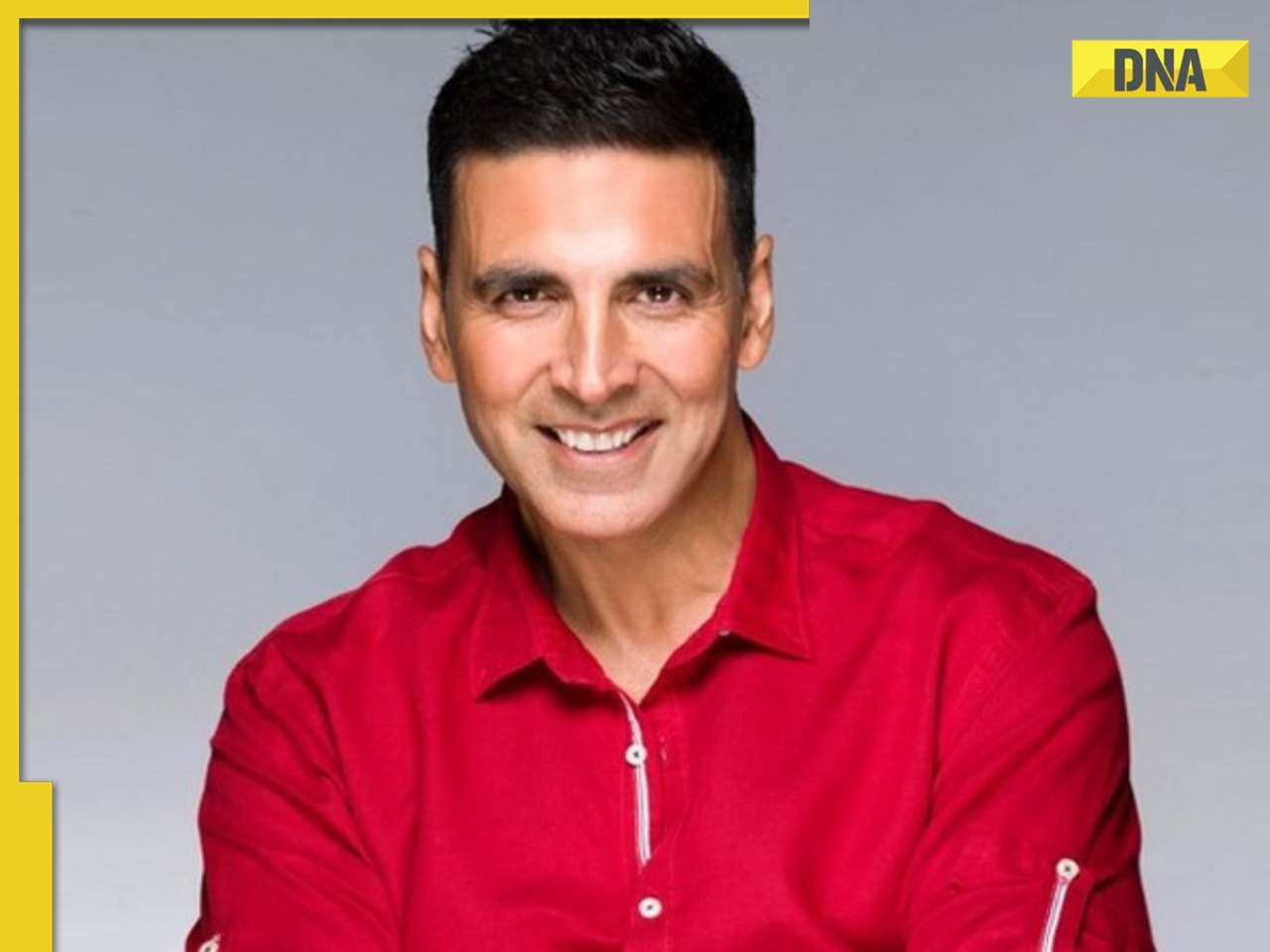



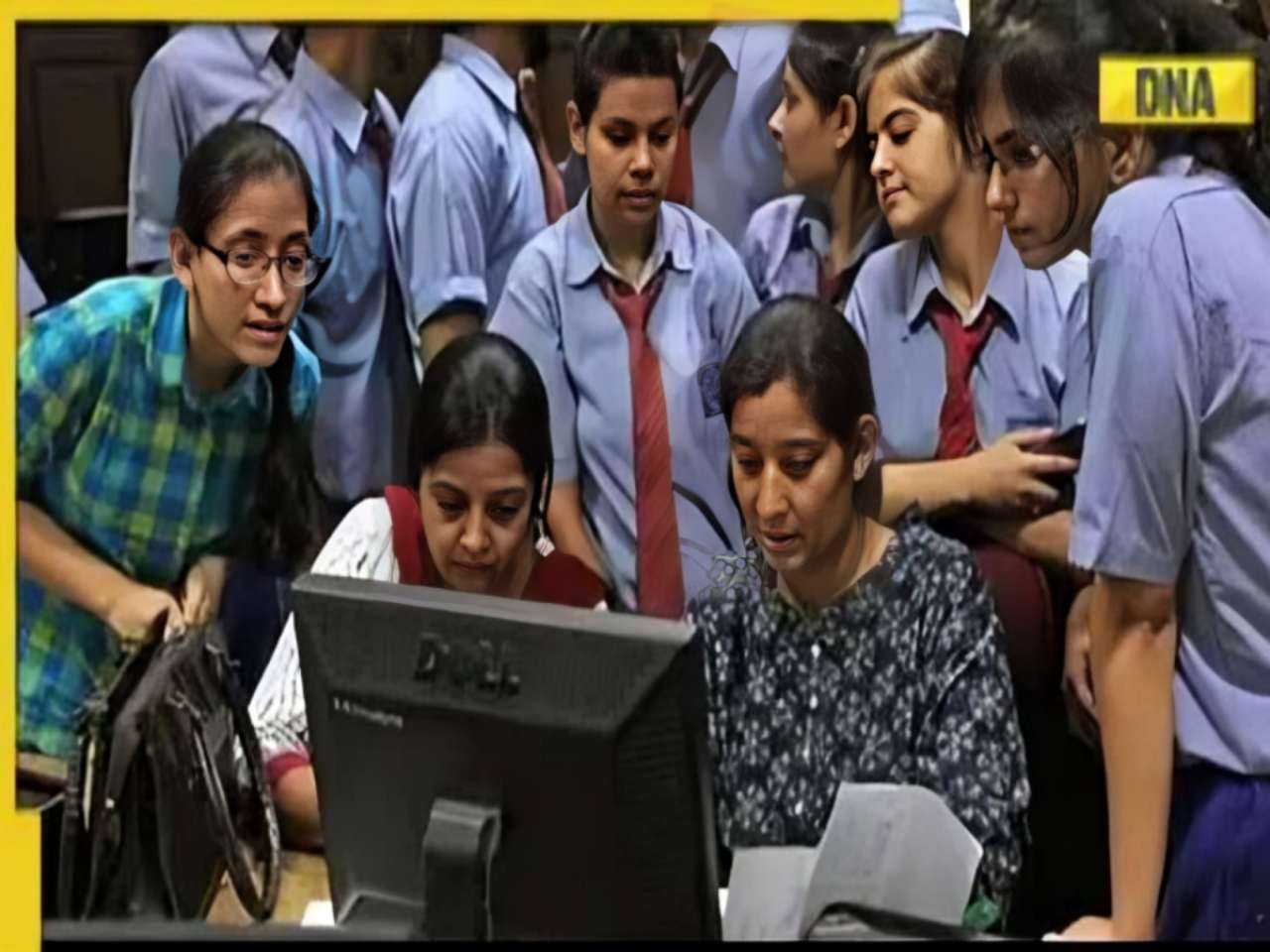
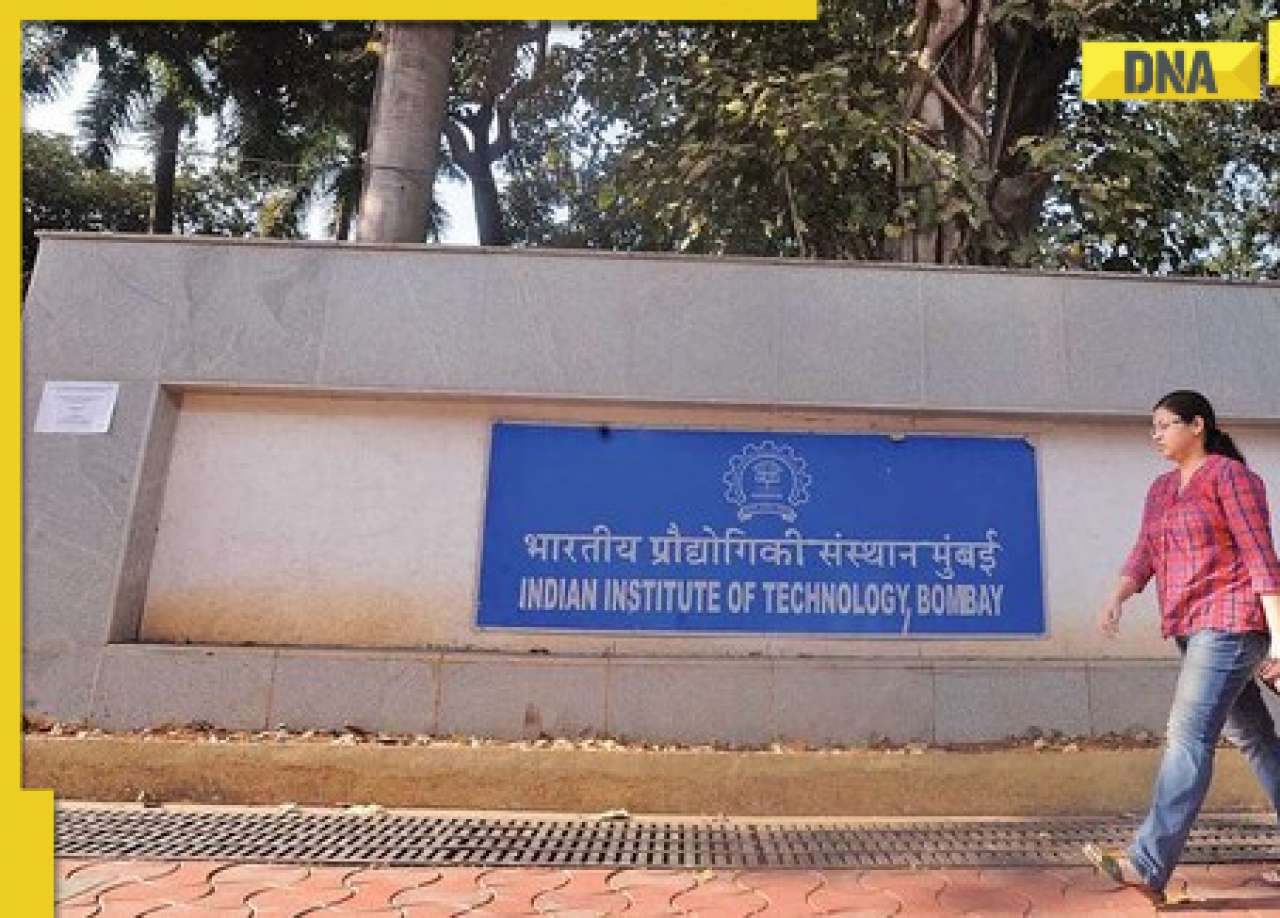
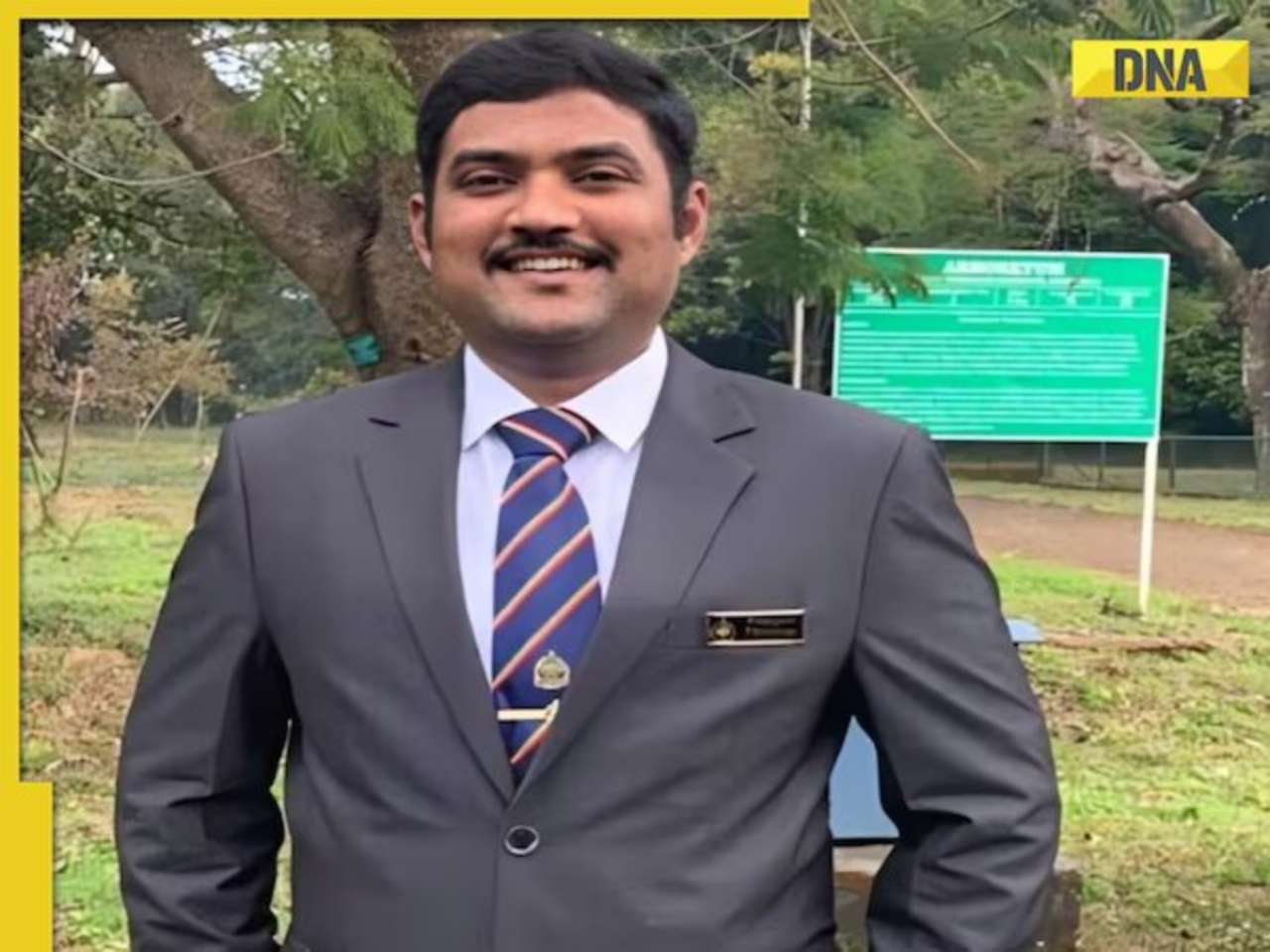
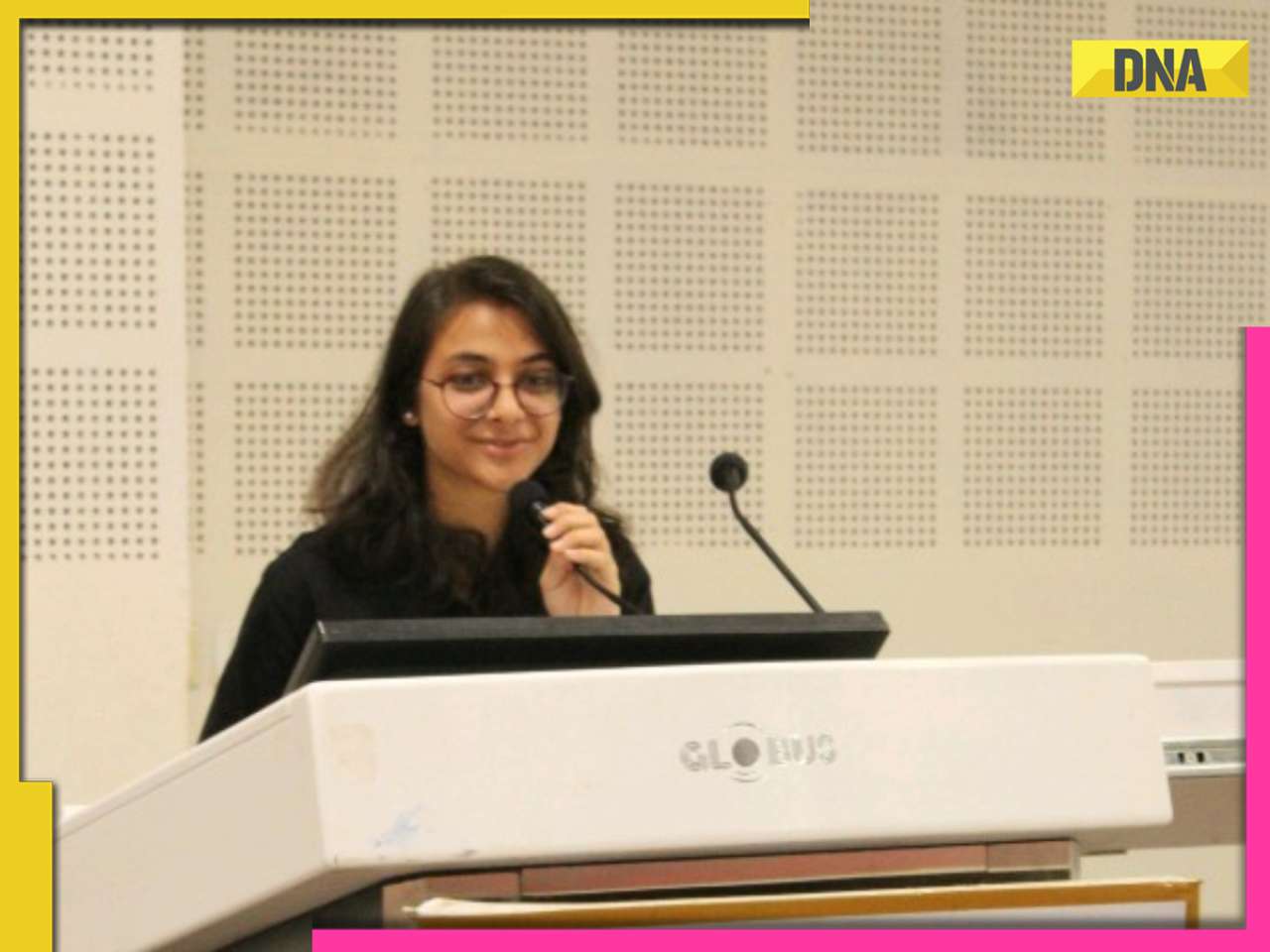
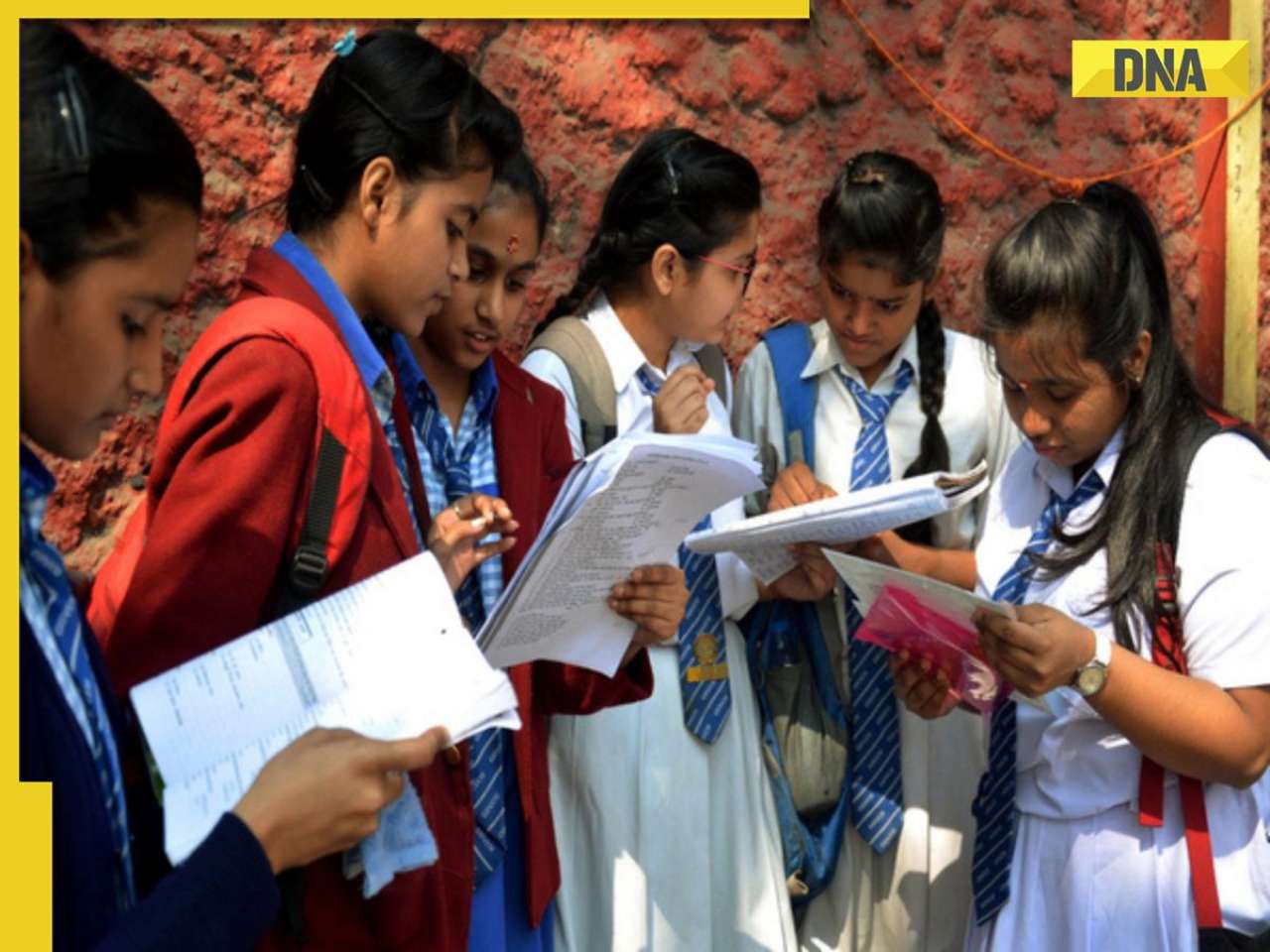






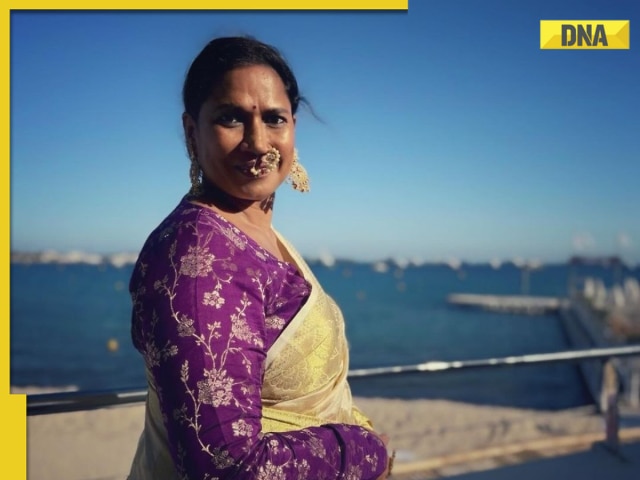








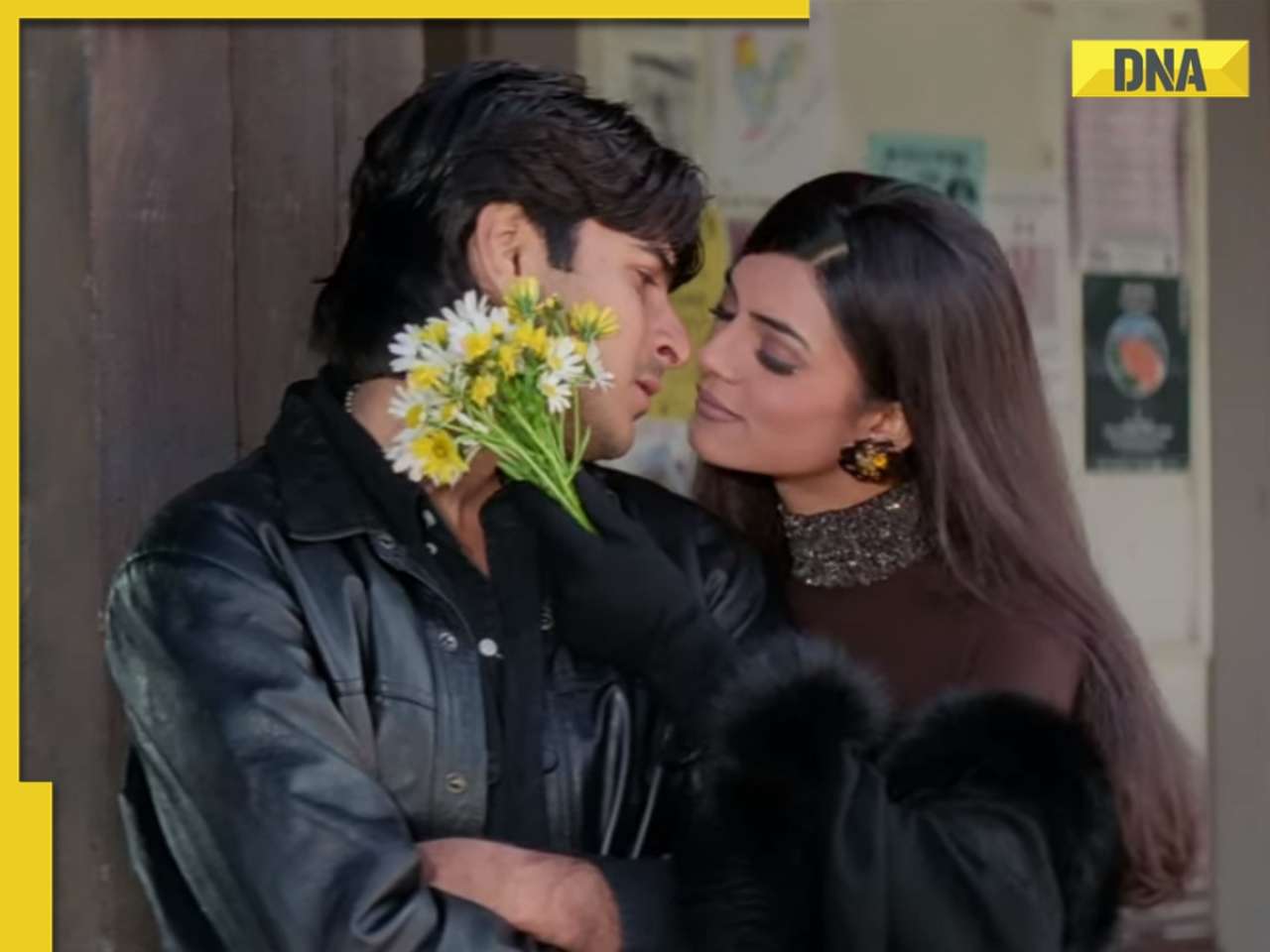



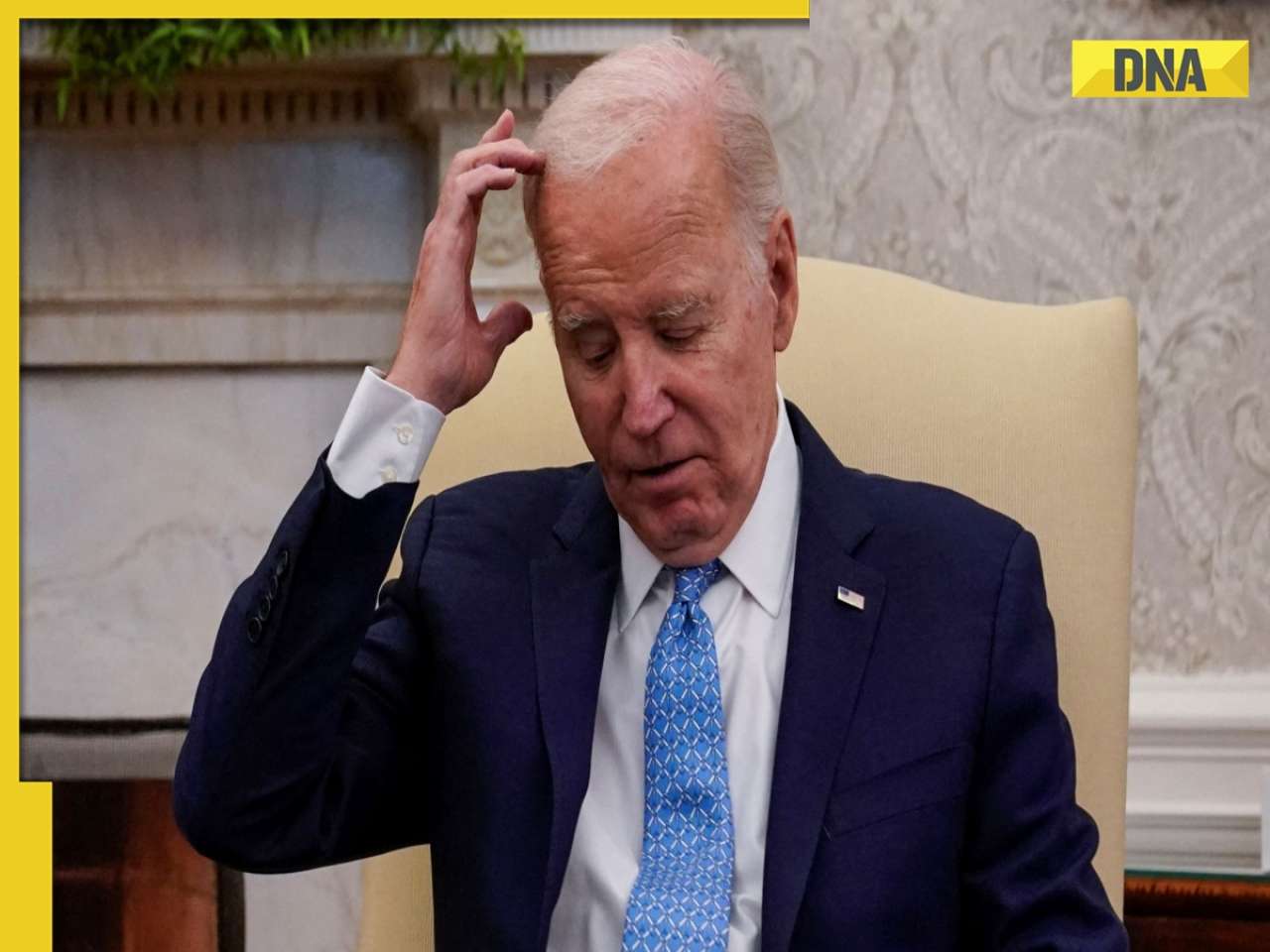
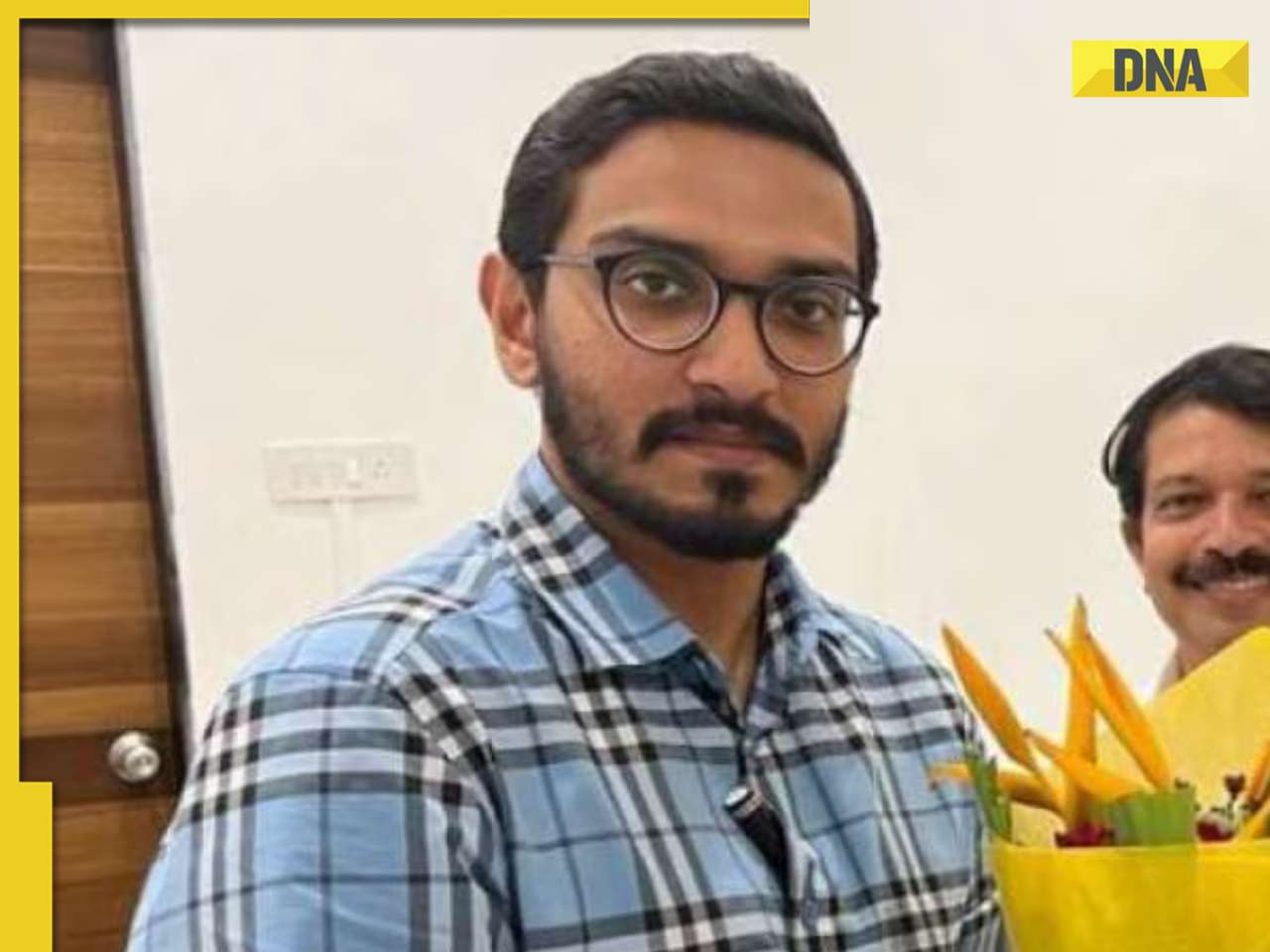
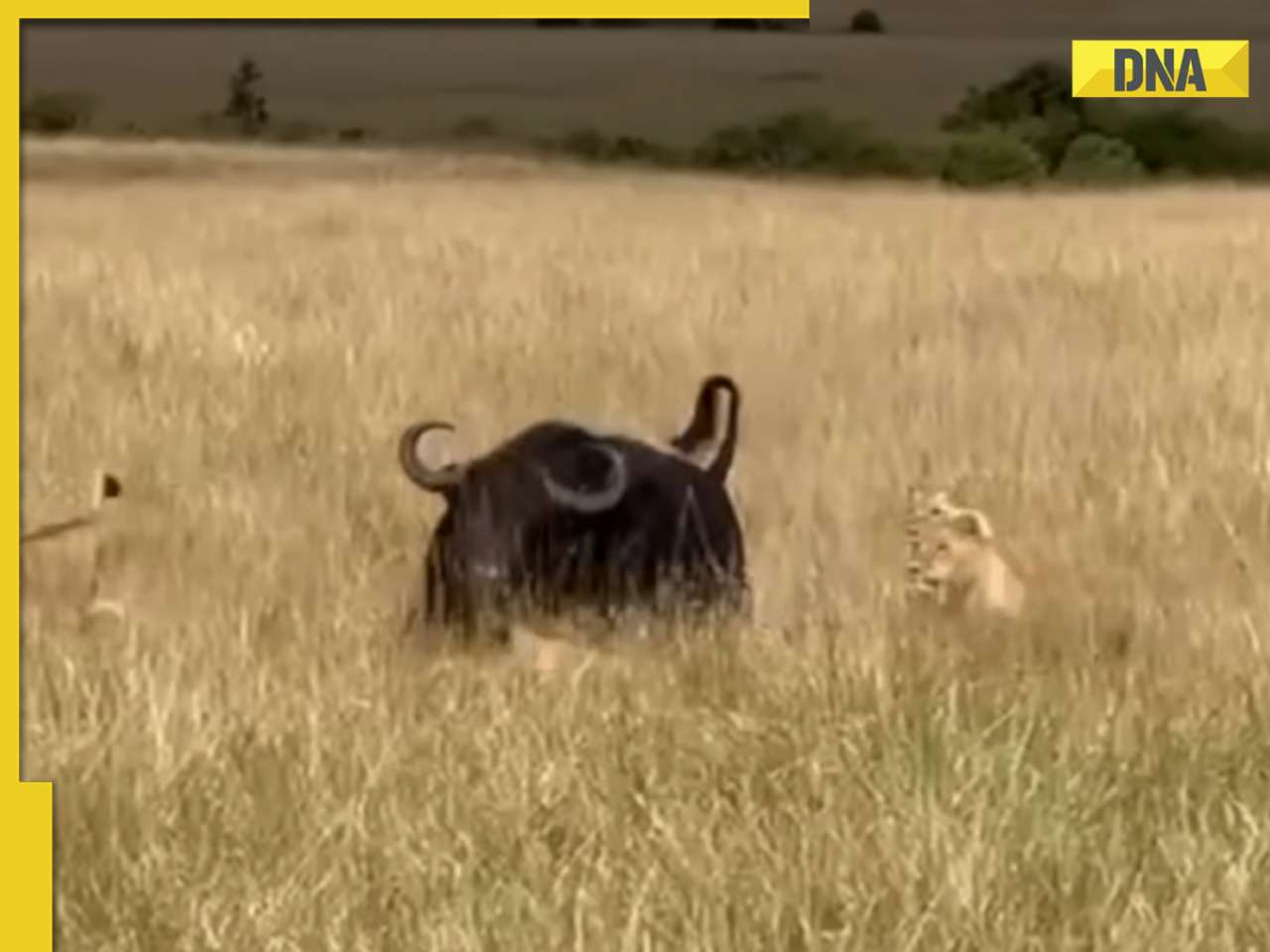






)
)
)
)
)
)